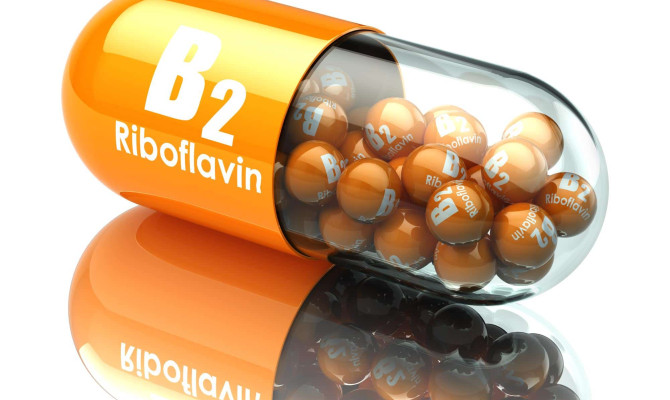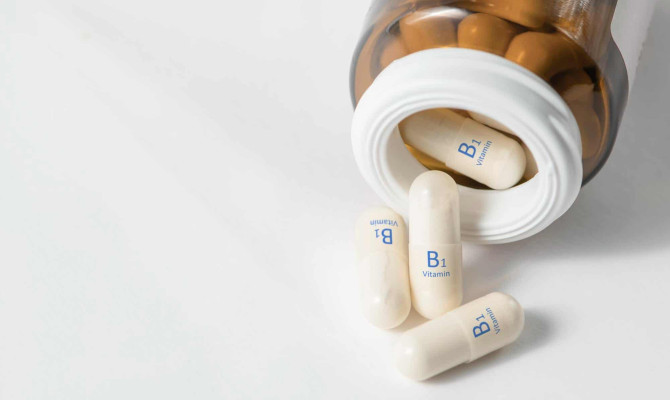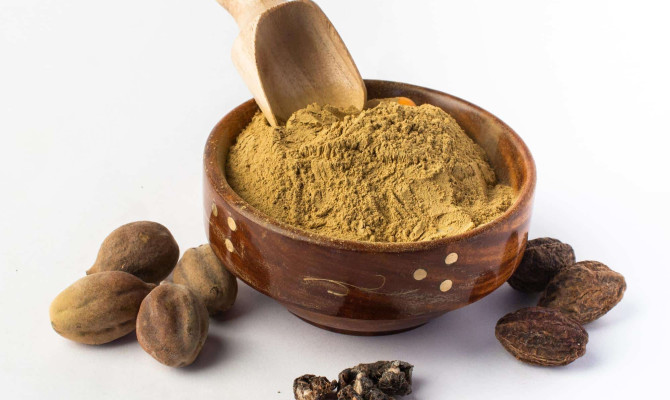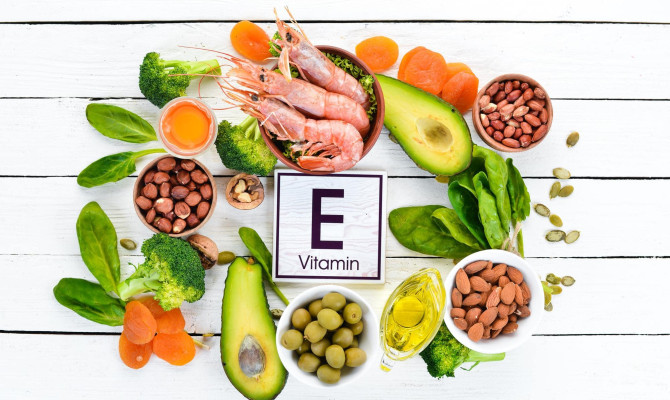Vitamin K: Sources and Benefits

- Vitamin K
- 16 Aug 2023
Overview
What is vitamin K?
Vitamin K is a fat-soluble vitamin essential for bodily functions like developing bones and blood clotting. It is stored in the liver and fat tissues of our body. Vitamin K is available in nature in two forms-Vitamin K1 (phylloquinone) and vitamin K2 (menaquinone).1Overview| Researched based study from Tadfonline.com
Vitamin K1 is present in plant foods, while vitamin K2 is present in animal and fermented foods.

Facts
Facts about vitamin K
- “K” of vitamin K is derived from the German word “Koagulation,” meaning blood clotting.
- Vitamin K is a vital nutrient in our body. Unlike other fat-soluble vitamins, minimal vitamin K circulates in our blood and is rapidly processed and excreted by the body.
- Vitamin K1 can be converted to vitamin K2 in our body, so there is rarely a deficiency of vitamin K2 in our body.
- Vitamin K 1 is the dominant vitamin K supplement in the United States 1Facts| Researched based study from Tandfonline.com,2Facts| Researched based study from Nih.gov .
Sources
Sources of vitamin K
Plant sources
- Kale
- Broccoli
- Spinach
- Brussels sprouts
- Asparagus
- Green beans
- Soybean
- Green peas
- Mustard greens
- Collard greens
- Lettuce
- Pumpkin
- Turnip greens
- Carrot
- Grapes
- Kiwi
- Avocado
- Blueberries
- Strawberries
Animal sources
- Egg yolk
- Organ meat
- Fatty fish
- Beef liver
- Goose liver
- Pork
- Chicken
- Cheese
- Dairy products 3Sources| Researched based study from Academic.oup.com/
Benefits

Health benefits of Vitamin K
When one consumes vitamin K1 in plant sources, the bacteria-harboring in our large intestine convert it to vitamin K2 (storage form), which is absorbed by the small intestine and then stored in the liver and fat tissues for later utilization.
Blood clotting
- Vitamin K is essential to produce a clotting factor known as prothrombin required for bone processes and blood coagulation (clotting)4Biological role| Researched based study from Nlm.nih.gov
Regulates blood clotting
- It makes the thirteen proteins required for blood clotting and thus plays a crucial role in the blood clotting process.
Improves mental health
- High levels of vitamin K in the blood improve an aged person’s memory and thinking capacity 5Benefits| Researched based study from Nlm.nih.gov
Improves heart health
- It helps control the blood pressure
- It helps in proper heart pumping
- It helps prevent mineral deposition in the arteries
- It decreases the risk of stroke(brain’s blood vessel ruptures and bleeds) 6Benefits| Researched based study from Nlm.nih.gov
Enhances bone health
- Vitamin K improves the bone density
- It reduces the risk of fractures
However, more research is required to prove this fact 7Benefits| Researched based study from Americanbonehealth.org
Decreases menstrual flow and pain
- Vitamin K Supplements decreases bleeding during the menstrual days
- It also decreases abdominal cramps 8Benefits| Researched based study from Nlm.nih.gov
Control blood sugar
- Vitamin K Supplements reduces the risk of diabetes mellitus
- It improves insulin sensitivity (body cells can convert glucose into energy)9Benefits| Researched based study from Mpdi.com
Relieves nausea during pregnancy
- Vitamin K supplementation decreases the pregnancy symptoms of nausea and vomiting
- It helps in the proper mental growth of the unborn child 10Benefits| Researched based study from Sciencedirect.com
Prevents liver cancer
- Vitamin K Supplements prevents abnormal growth in liver cancer patients
- It improves the liver’s functioning 11Benefits| Researched based study from Nlm.nih.gov
Dosage
Dosage of vitamin K
The recommended adequate intake (AI) of vitamin K for different age groups is as follows
Infants
- 0-6 months – 2 mcg (micrograms) per day
- Seven months to 1 year-2.5 mcg per day
Toddlers
- 1 to 3 years-30 mcg
Children
- 4 to 8 years- 55 mcg per day
- 9 to 13 years- 60 mcg per day
Adolescent
- 14 to 18 years- 75 mcg per day
Adult (19 years and above)
- Men- 120 mcg per day
- Women- 90 mcg per day
- Pregnant woman- 90 mcg per day
- Nursing mothers-90 mcg per day
- Pregnant woman (under 19 years) -75 mcg per day
- Nursing mothers (under 19 years) – 75 mcg per day 12Dosage| Researched based study from Wiley.com
Deficiency
Deficiency symptoms of vitamin K
- Profuse bleeding
- Prolong time for the blood to clot
- Small blood clots under the nails
- Blood in urine
- Blood in stool
- Osteopenia (loss of bone mineral density)
- Osteoporosis(a bone disease that decreases bone strength and increases the risk of fractures)
- Hematomas (blood clots form in organs or tissues)
- Petechia (tiny bleeding spots under the skin)13Deficiency| Researched based study from Nlm.nih.gov
Deficiency causes for Vitamin K
- Prolong antibiotic consumption
- Blocked bile duct
- Cystic fibrosis ( a disease in which thick sticky mucus damages many organs of the body)
- Malabsorption syndrome (body unable to absorb vitamins and nutrients from food)
- Taking anticoagulant medicine (blood thinning medicine)13Causes| Researched based study from Nlm.nih.gov
People more prone to develop vitamin K deficiency
- Newborn infants have an increased risk of vitamin K deficiency
- Celiac disease(a disease that damages the small intestine)
- Intestinal disorders such as gall bladder, liver
- Bile duct disorder
- Ulcerative colitis( bowel disease in which sores occur in the large intestine’s inner lining)
- Short bowel syndrome( a disease in which the body is unable to absorb adequate nutrients)
- Bariatric surgery(weight loss surgery)
- Surgical removal of intestinal part [13].
Reasons for vitamin K deficiency in infants
- Vitamin K doesn’t transfer appropriately from the mother’s placenta to the baby.
- Breast milk contains a minimal amount of vitamin K
- The newborns cannot make vitamin K2 during the initial few days of their life.
- The baby’s liver doesn’t use the vitamin efficiently
Overdose toxicity
- No overdose toxicity of vitamin K consumption has been reported in humans and animals to date
Side effects
Side effects of Vitamin K
Less common side effects
- Irritability
- Loss of appetite
- Body swelling
- Movement difficulty
- Breathing difficulty
- Muscle stiffness
- Skin paleness
- Yellow eyes
Rare side effects
- Unusual taste
- Difficulty in swallowing
- Irregular heartbeat
- Tightness of chest
- Lightheadedness
- Fainting 14Side effects| Researched based study from Researchgate.net
Interactions
Interaction with medicines
Cholesterol-lowering medication
- Cholesterol-lowering medication such as Colestid decreases the body’s ability to absorb fat-soluble vitamins such as vitamin K
Anticonvulsant medicine (anti-seizure medicine)
- Anticonvulsant medication decreases the body’s ability to utilize vitamin K
- Taking anticonvulsant medicines during pregnancy and breastfeeding causes vitamin K deficiency in newborns.
Anticoagulant (blood thinning medicine)
- Anticoagulants such as Coumadin prevent blood clots while
- Vitamin K helps in the clotting process
- Taking vitamin K and anticoagulant together may impact the drug’s effect.
Orlistat
- Orlistat is used to reduce weight.
- Orlistat decreases the body’s fat absorption capacity
- It lowers the level of vitamin K in the body
Antibiotics
- Taking antibiotics such as Cephalosporins decreases vitamin K absorption in the body because the antibiotics destroy the beneficial bacteria in the intestine responsible for converting vitamin K1 into Vitamin K2 (storage form) and the harmful bacteria15Interactions| Researched based study from Nlm.nih.gov
Takeaway
Key Takeaways
- Vitamin K is an indispensable nutrient for the correct functioning of our body.
- One should take a well-balanced diet to meet the daily vitamin K intake and symptoms of deficiency.
- It is recommendable to consult a physician before consuming Vitamin K supplementation.
Any feedback on this article?
 This Articles content was accurate
This Articles content was accurate Very Informative Article
Very Informative Article I have a question or a comment
I have a question or a comment
 This article contains inaccurate content
This article contains inaccurate content This article was not helpful
This article was not helpful I have a question or a comment
I have a question or a comment
We appreciate your helpful feedback!
Checkout our social pages
References
-
Taylor & Francis Online
Vitamin K: an old vitamin in a new perspective | Overview
-
National Institutes of Health
Vitamin K-Fact Sheet for Health Professionals | Facts
-
Oxford Academics
Vitamin K – sources, physiological role, kinetics, deficiency, detection, therapeutic use, and toxicity | Sources
-
National Library of Medicine
Biological Role of Vitamin K—With Particular Emphasis on Cardiovascular and Renal Aspects | Biological role
-
National Library of Medicine
Vitamin K status and cognitive function in healthy older adults | Benefits
-
National Library of Medicine
The Role of Vitamin K Status in Cardiovascular Health: Evidence from Observational and Clinical Studies | Benefits
-
American Bone Health
Vitamin K2 Plays Key Role in Bone Health | Benefits
-
National Library of Medicine
Heavy menstrual bleeding in women treated with rivaroxaban and vitamin K antagonists and the risk of recurrent venous thromboembolism | Benefits
-
MPDI
Beneficial Effects of Vitamin K Status on Glycemic Regulation and Diabetes Mellitus: A Mini-Review | Benefits
-
Science Direct
Coagulopathy secondary to vitamin K deficiency in hyperemesis gravidarum | Benefits
-
National Library of Medicine
Regression of hepatocellular carcinoma during vitamin K administration | Benefits
-
Wiley Online Library
Dietary reference values for vitamin K | Dosage
-
National Library of Medicine
Vitamin K Deficiency | Deficiency symptoms
-
ResearchGate
Review article - Impact of Vitamin K on Human Health | Side effects
-
National Library of Medicine
Drug-drug interactions between vitamin K antagonists and statins: a systematic review | Interactions




































